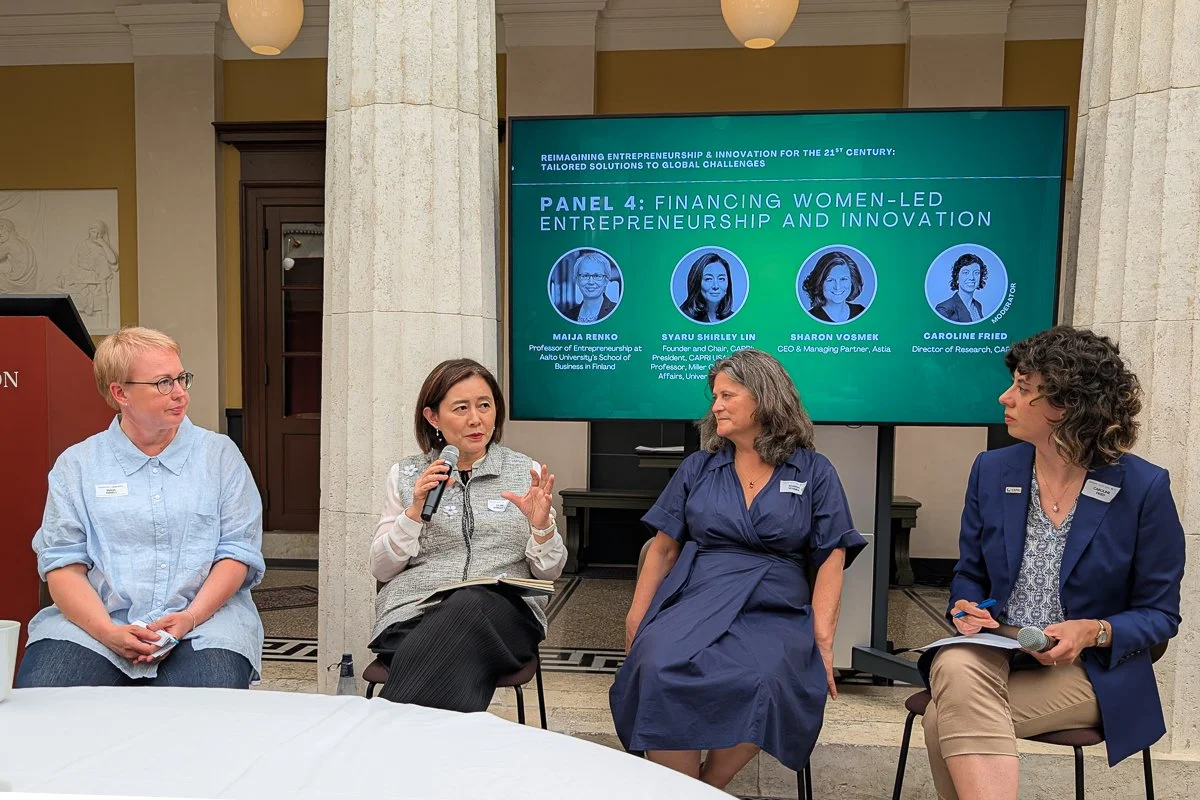Financing Women-led Entrepreneurship and Innovation — A Panel at the Reimagining Entrepreneurship Conference in Copenhagen
Panelists:
Syaru Shirley Lin, Founder and Chair, CAPRI; President, CAPRI USA; Research Professor, Miller Center of Public Affairs, University of Virginia
Maija Renko, Professor of Entrepreneurship, School of Business, Aalto University
Sharon Vosmek, CEO & Managing Partner, Astia
Moderator: Caroline Fried, Director of Research, CAPRI
This session examined the persistent funding barriers faced by women entrepreneurs across regions, despite growing numbers of women-led ventures. The panelists noted that while women-led businesses are growing, their access to venture capital (VC) remains disproportionately low across all regions. The problem is systemic: from the composition of investment teams to the bias embedded in funding processes and definitions of success.
Drawing on research and practice from Europe, the US, and Asia Pacific, The speakers emphasized two key challenges: the availability of capital, and the underrepresentation of women in high-growth entrepreneurial sectors. In Europe, early-stage funding is often channeled through state-linked institutions, yet gender-responsive funding remains limited or nonexistent in many countries. Although crowdfunding platforms exhibit less gender bias, they rarely serve as viable substitutes for substantial VC investments.
The panelists highlighted the structural and cultural barriers preventing women from entering or thriving in emerging tech sectors like AI and blockchain. In the Asia Pacific, the data are especially scarce, and even among venture capitalists committed to investing in women, the pool of investable women-led startups remains small and skewed toward lower-capital, market-facing sectors such as e-commerce.
Mentorship programs, while popular, were critiqued as insufficient unless paired with tangible financial support, gender-sensitive impact metrics, and pipeline reforms. Some regions are experimenting with quotas or diversity targets, but speakers emphasized that deeper cultural and institutional change is needed, especially around who defines innovation, risk, and success. Without such changes, women will remain peripheral to the systems shaping future economies. The speakers called for more inclusive investment strategies, recognition of diverse entrepreneurial journeys, and systemic efforts to rebalance who gets to participate in building the future.
Date: Wednesday, July 23, 2025
Time: 3:30–5:00 p.m.
Location: The Carlsberg Akademi, Copenhagen

